United Kingdom
The development of the percussion revolver in the United Kingdom began in the early 1830s. At the time, the British military was still using flintlock pistols, which were outdated and unreliable. Percussion revolvers were a new technology, and they offered a number of advantages over flintlock pistols, including:
* Faster reload times
* More reliable ignition
* Greater accuracy
* Increased firepower
A number of British gunsmiths began to develop percussion revolvers in the 1830s, and the first successful British percussion revolver was the Adams revolver, patented by Samuel Adams in 1835. The Adams revolver was a double-action revolver, meaning that it could be cocked and fired with a single pull of the trigger. This was a significant advantage over other percussion revolvers at the time, which were mostly single-action.
The Adams revolver was adopted by the British Army in 1856, and it remained in service until 1880. It was also widely used by British civilians and law enforcement.
In the 1840s and 1850s, a number of other British gunsmiths developed percussion revolvers, including Beaumont, Tranter, and Colt. These revolvers were all of high quality, and they helped to establish the United Kingdom as a leader in the production of percussion revolvers.
One of the most significant developments in the history of the UK percussion revolver was the invention of the Enfield revolver in the 1860s. The Enfield revolver was a double-action revolver that was chambered for the .476 Enfield cartridge. It was a reliable and accurate revolver, and it was widely used by the British military and police.
The Enfield revolver remained in service until the late 1880s, when it was replaced by the Enfield Mk I revolver, which was chambered for the .450 Adams cartridge. The Enfield Mk I revolver was the last percussion revolver to be used by the British military.
The development of the percussion revolver in the United Kingdom had a significant impact on British military and civilian society. Percussion revolvers were more reliable and accurate than flintlock pistols, and they offered increased firepower. This made them ideal for both military and civilian use.
Percussion revolvers were also relatively inexpensive to produce, making them accessible to a wide range of people. This helped to democratize the ownership of firearms in the United Kingdom.
The percussion revolver was a revolutionary technology that changed the way that wars were fought and the way that people defended themselves. The United Kingdom was one of the leading producers of percussion revolvers in the world, and its gunsmiths played a key role in the development of this important technology.
Showing 1–12 of 19 resultsSorted by latest
-
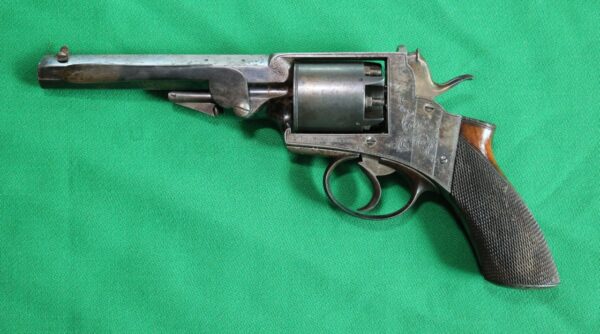
Very rare 54 bore Reeves revolver in original box with accessories
Read more -

Calisher and Terry Carbine
Read more -
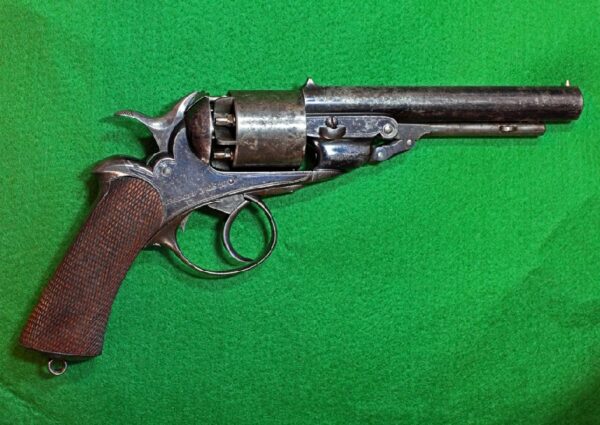
George Daw percussion 54 revolver
Read more -
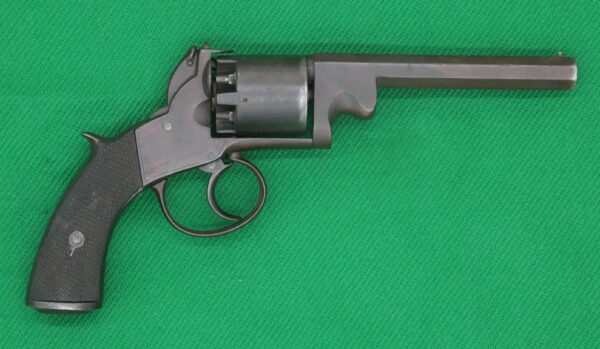
Webley type DA 9mm revolver
Read more -
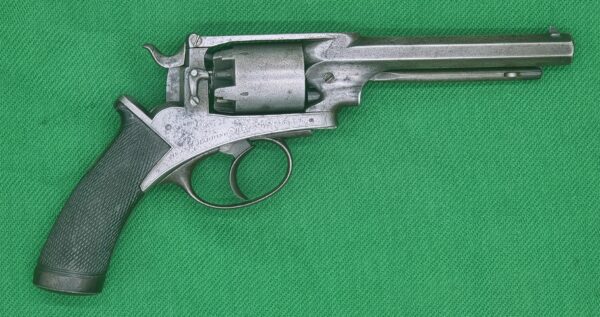
Deane Harding 54 revolver
Read more -
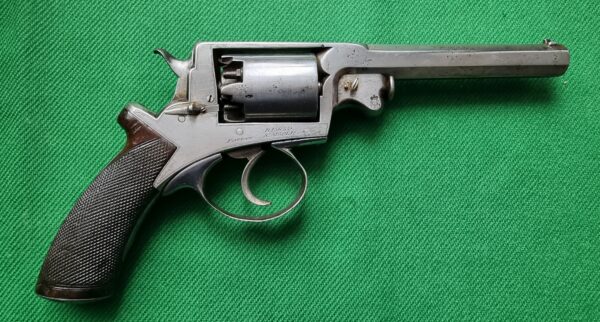
Beamont Adams 54 polished bright
Read more -
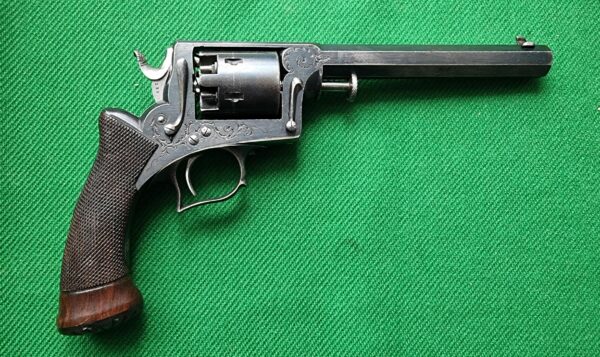
Deane-Adams pocket caliber
Read more -
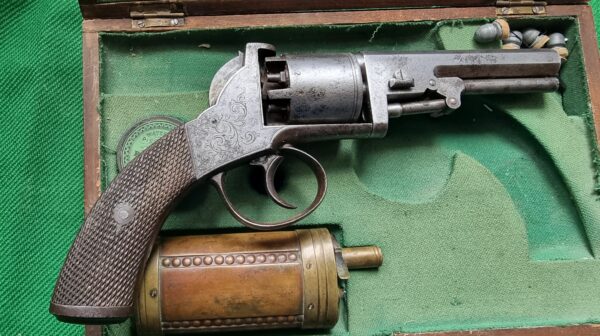
Revolver Pryse & Cashmore 1855
Read more -
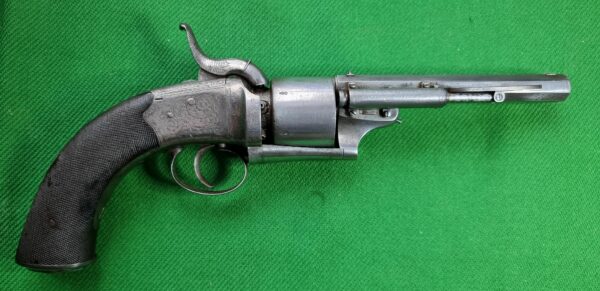
Parkerfield and Sons transitional revolver
Read more -
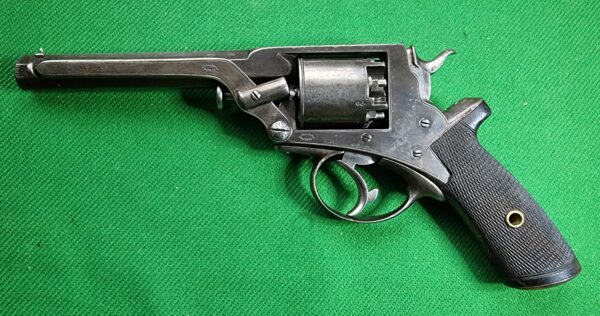
Tranter 4th type 54 revolver
Read more -
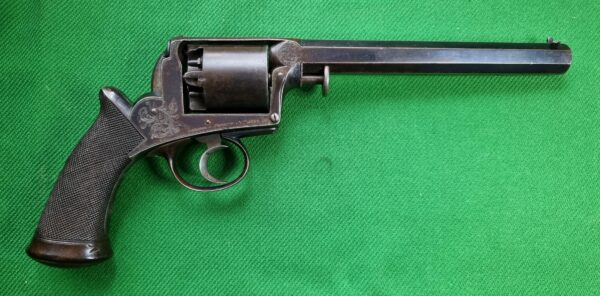
Adams DA 50 canon like revolver
Read more -
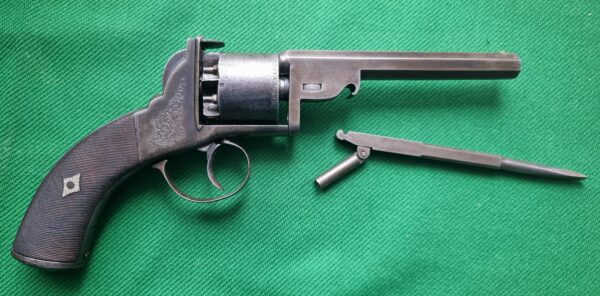
Webley Shawn and Son 54 revolver
Read more